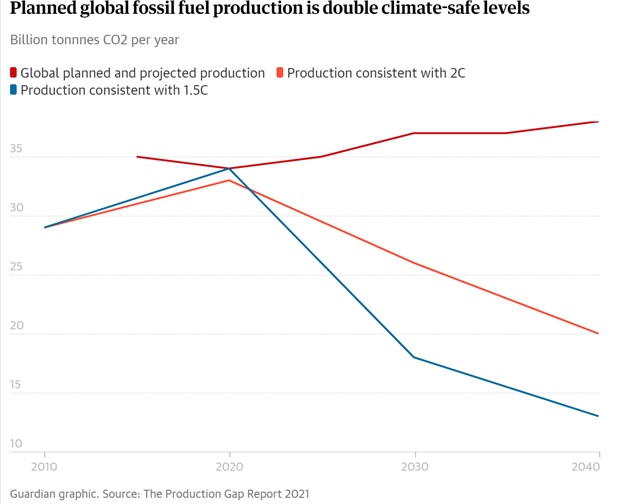With ever increasing heatwaves, mudslides, and rising sea levels, phasing out fossil fuels is a critical step in solving climate change.
For decades, scientists have continued to confirm the significant role the fossil fuel industry has played in causing climate change.
In fact, the Intergovernmental Panel on Climate Change has confirmed that coal, oil, and gas have been responsible for 86% of all carbon dioxide emissions in the past 10 years, making it clear that we cannot solve climate change without solving the fossil fuel problem.
But as of recent, a UN report has found that planned fossil fuel production “vastly exceeds” the limits necessary to keep global warming to below 1.5C which would require an average decline in fossil fuel production of at least 6% per year between 2020 and 2030.
Although countries have made further pledges at COP26 since the report, sufficient policies to reflect such pledges have yet to be created.
These findings have been met with relatively little action on behalf of world governments as coal, oil, and natural gas production is expected to increase in coming years.

Aside from the climate denial campaigns led by companies such as Shell and ExxonMobil along with the short-term economic incentives for many politicians to delay climate action, part of the problem is that there is currently no binding agreement to limit the production of fossil fuels.
Even the Paris Agreement fails to mention fossil fuels – many policies also focus primarily on reducing the demand for fossil fuels rather than the production and supply.
The absence of a coordinated global effort to phase out the production of fossil fuels means that they will continually to be burned for energy (and contribute further to global warming) and workers and economies alike will be left stranded as they face the reality of the dramatic extraction of a limited, non-renewable resource.
Following discussions by Pacific leaders and least developed countries to create such a global effort, a new initiative has come about.


















